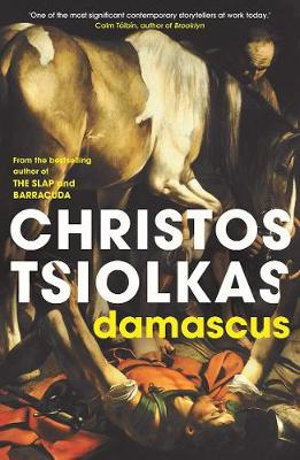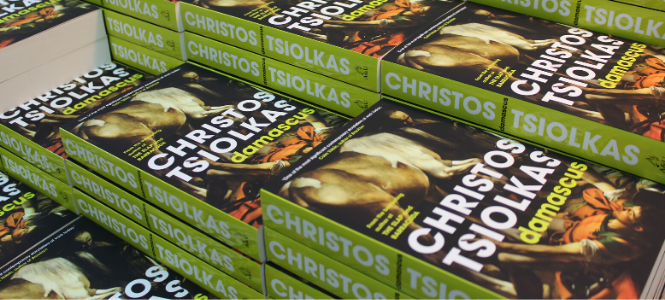Australian readers know Christos Tsiolkas as one of our fiercest, most compassionate writers, one who grapples with complex questions of class, masculinity, religion and patriarchy with clarity and passion.
Now, Christos returns with Damascus, a book that might just be his most visceral yet and one in which he tackles the history of Christianity and its effect on the world.
Damascus takes its readers to the 4th century to recount the violent birth of the Christian church through the eyes of one of its most devout followers, Paul. On the surface, this book appears to represent a radical departure from Christos’ previous works, but he insists that it has a deep connection with the rest of his books.
“What connects Damascus to my other books is a search for what makes a good life,” he says. “How to be an honourable, a good, compassionate person in the world.”
In search of this ideal, Christos decided to go right back to the foundation of Christian ethics and the writings of Paul, one of the most significant interpreters of the teachings of Jesus. Originally known as Saul until his transformative experience on the road to Damascus, his writings would come to define the worldview of many a faithful follower – while alienating countless others.
While he now considers himself a non-believer, Christos was one such follower. Struggling with his sexual identity, he dipped into Christian theology as a troubled teenager in search of answers. Seeking solace, he instead found judgment and condemnation in Paul’s strict censure of homosexuality and so he turned away from the church.
“I was hungry and I was searching for a way of understanding my place in the world, and I also was coming to grips with my own sexuality,” Christos says.
Decades later, he found himself unable to shake off the feeling that his understanding of the church had been defined by this one experience of Paul. He was also driven by a desire to understand just how this initially small movement came to have such an enormous impact on the course of human history.
“I had become fascinated just thinking about the roots of Christianity,” Christos says. “How did this become a world religion? What was it in these words that literally changed the world?”
With Damascus, Christos has stripped Christianity back to one essential idea: that it’s about what we owe to the stranger walking beside us. The result is a remarkably contemporary novel about the human values and ideas that have reached through time to make their indelible mark on the present, one that seeks out an understanding of how men come to do the things that they do.
Christos Tsiolkas came to Booktopia to sign some copies of his book, before sitting down for a chat with Ben Hunter and myself. Listen to our podcast with Christos below and grab a signed copy of Damascus here!

Damascus
Christos Tsiolkas' stunning new novel Damascus is a work of soaring ambition and achievement, of immense power and epic scope, taking as its subject nothing less than events surrounding the birth and establishment of the Christian church.
Based around the gospels and letters of St Paul, and focusing on characters one and two generations on from the death of Christ, as well as Paul (Saul) himself, Damascus nevertheless explores the themes that have always obsessed Tsiolkas as a writer: class, religion, masculinity, patriarchy, colonisation, exile; the ways in...
About the Contributor
Olivia Fricot
Olivia Fricot (she/her) is Booktopia's Senior Content Producer and editor of the Booktopian blog. She has too many plants and not enough bookshelves, and you can usually find her reading, baking, or talking to said plants. She is pro-Oxford comma.
Follow Olivia: Twitter








Comments
November 2, 2019 at 2:55 pm
Thank you, Booktopia! What would I do without you?